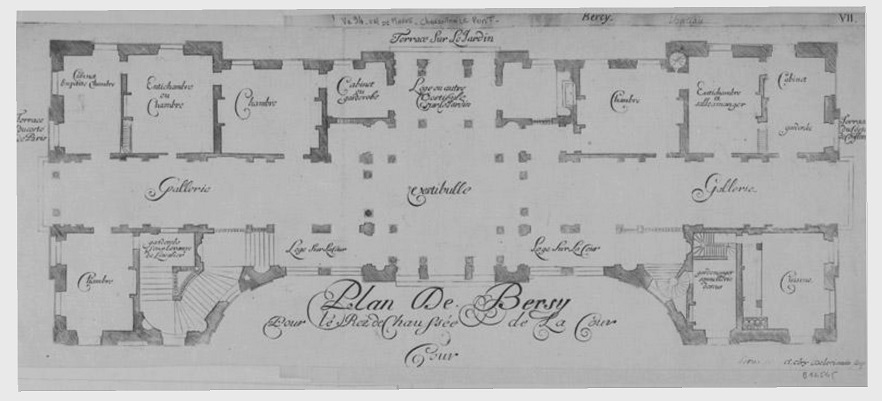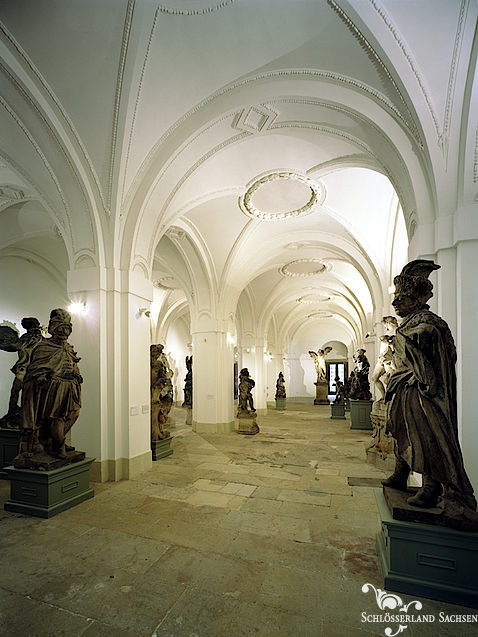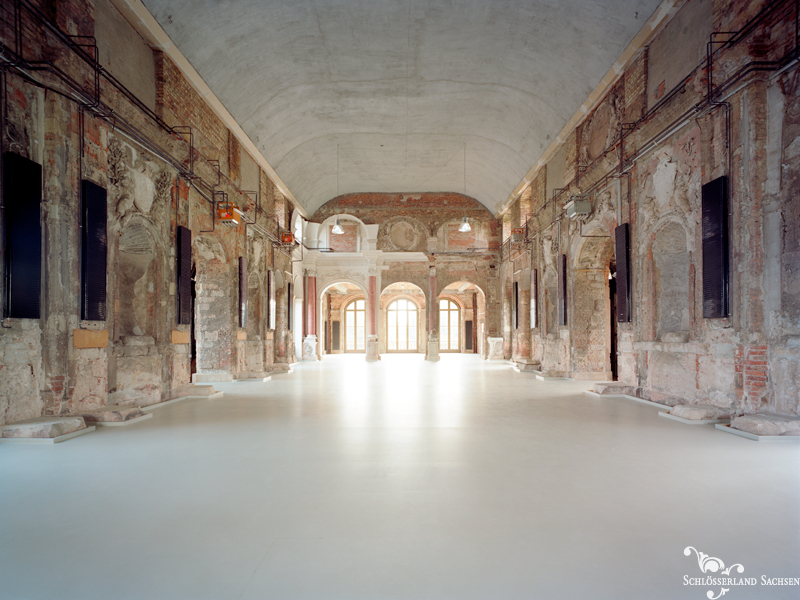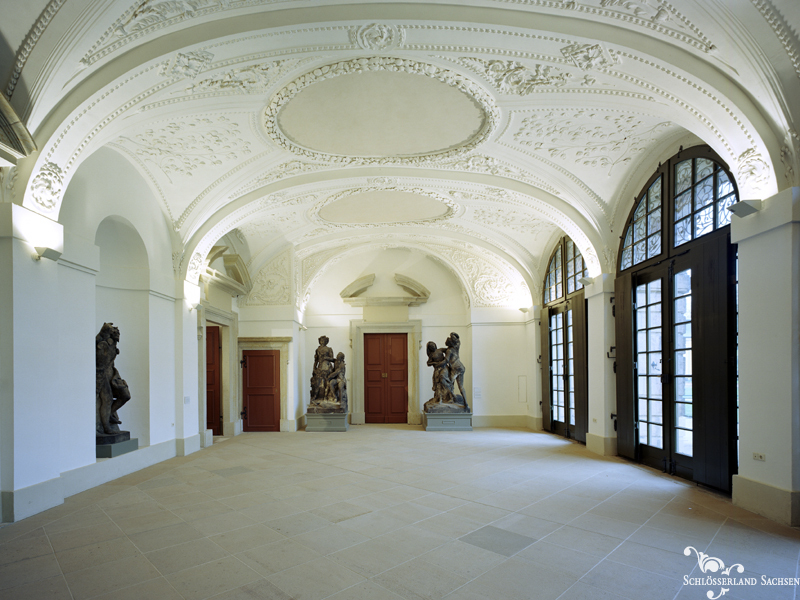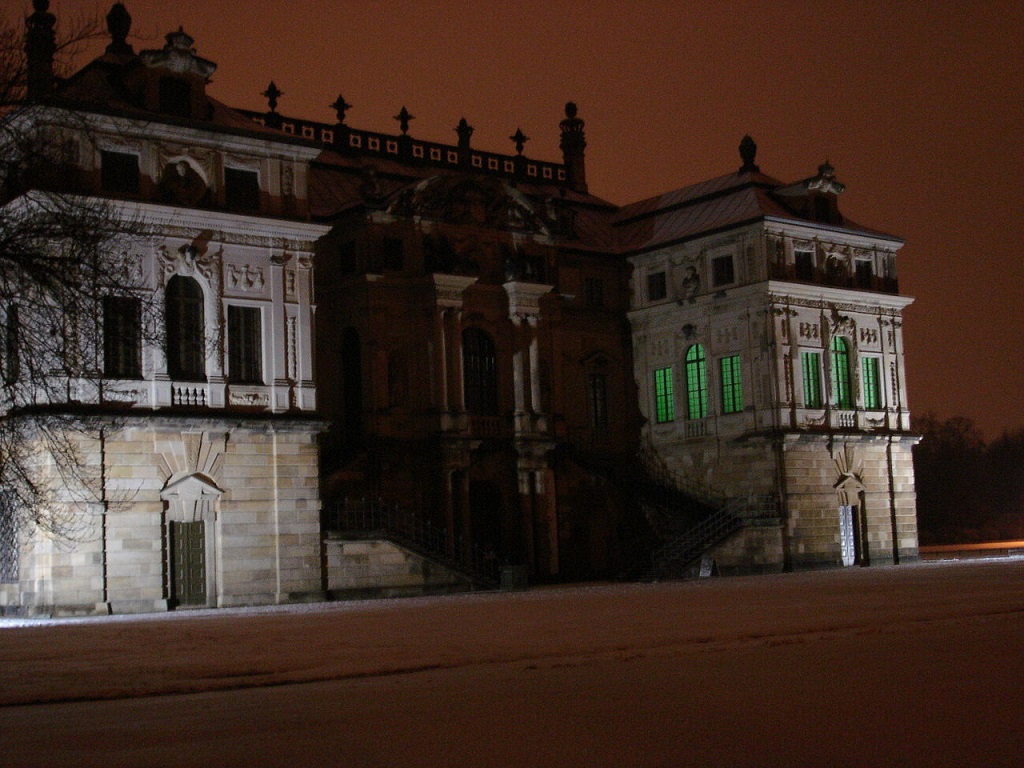Sommerpalais: Difference between revisions
| (7 intermediate revisions by the same user not shown) | |||
| Line 15: | Line 15: | ||
===== Appearance of the Summer Palace ===== | ===== Appearance of the Summer Palace ===== | ||
The Summer Palace is typical, if a bit strict of character for the classical style of building during the German Baroque period. It possesses distinctive style elements which include the powerful, high contrast facade, with lush, but strictly ordered ornamentation. The palace possesses characteristics which identify it as a type summer-house, similar to a number of French castle buildings of the 17th century; apparently the architect was familiar with and fond of the castle Marly-le-Roi, near Paris. On the other hand, clearly there are elements which suggest a Genoese influence on the architect as well. | The Summer Palace is typical, if a bit strict of character for the classical style of building during the German Baroque period. It possesses distinctive style elements which include the powerful, high contrast facade, with lush, but strictly ordered ornamentation. The palace possesses characteristics which identify it as a type summer-house, similar to a number of French castle buildings of the 17th century; apparently the architect was familiar with and fond of the castle Marly-le-Roi, near Paris. On the other hand, clearly there are elements which suggest a Genoese influence on the architect as well. | ||
<br> | |||
<br> | |||
[[File:Dresden grosser garten palais blueprint.jpg]] | |||
<br> | |||
<br> | |||
[[File:Grosser garten palais mittelsaal.jpg]] | |||
<br> | |||
<br> | |||
[[File:Grosser garten palais great hall.jpg]] | |||
<br> | |||
<br> | |||
[[File:Grosser garten palais langsaal.jpg]] | |||
===== ''Websites'' ===== | ===== ''Websites'' ===== | ||
http://de.wikipedia.org/wiki/Palais_im_Gro%C3%9Fen_Garten | http://de.wikipedia.org/wiki/Palais_im_Gro%C3%9Fen_Garten | ||
Latest revision as of 12:45, 11 August 2014
Introduction
The Palais im Grossen Garten, also known as the winter or summer palace, is a Baroque pleasure palace in Dresden. It is located in the Great Garden, a large green area on the outskirts of the city center.
The palace is considered the first important secular building in Saxony, which was built after the Thirty Years' War. It is also one of the earliest Baroque buildings in the German-speaking world and one of the most important historical art and cultural buildings of Dresden.
Built in 1680, the palace was originally a summer residence of Albertine, of the Saxon royal house. As early as 1730 it was used to store parts of the royal art collections, from the 19th century exhibitions were presented. The air raids on Dresden in 1945 led to severe damage to the building. Its exterior appearance is now restored; but, the reconstruction of the interior of the building is not yet completed. Currently, it is used only for limited exhibitions.
Palace Location
The palace is located in the Great Garden, about two kilometers southeast of Dresden's old town. It stands in the center of about two square kilometers of parkland which it dominates. It is precisely located at the intersection of two perpendicular lines of sight, the main and cross-Allee. A number of smaller buildings are located within a radius of about 500 meters. To the Southeast and adjacent to the palace is a pond with a fountain, and to the north-west, the palace is bordered by flower gardens.
Appearance of the Summer Palace
The Summer Palace is typical, if a bit strict of character for the classical style of building during the German Baroque period. It possesses distinctive style elements which include the powerful, high contrast facade, with lush, but strictly ordered ornamentation. The palace possesses characteristics which identify it as a type summer-house, similar to a number of French castle buildings of the 17th century; apparently the architect was familiar with and fond of the castle Marly-le-Roi, near Paris. On the other hand, clearly there are elements which suggest a Genoese influence on the architect as well.
